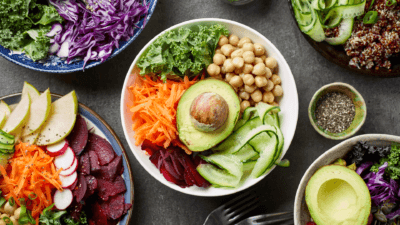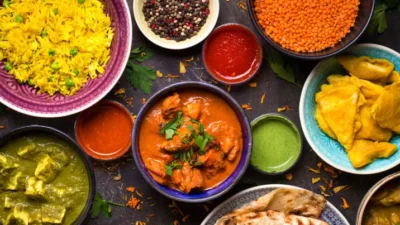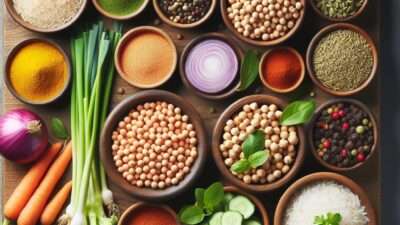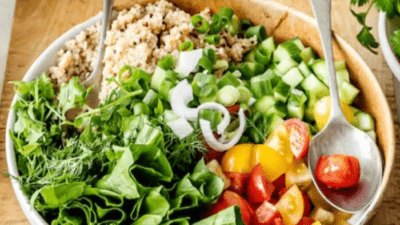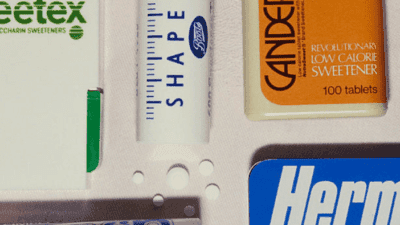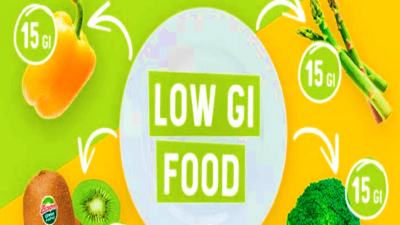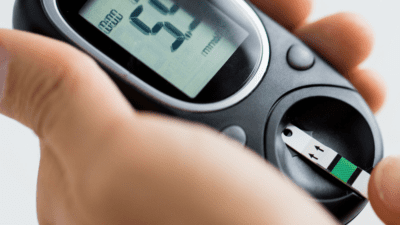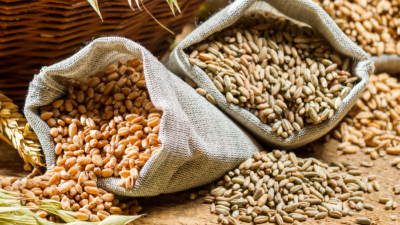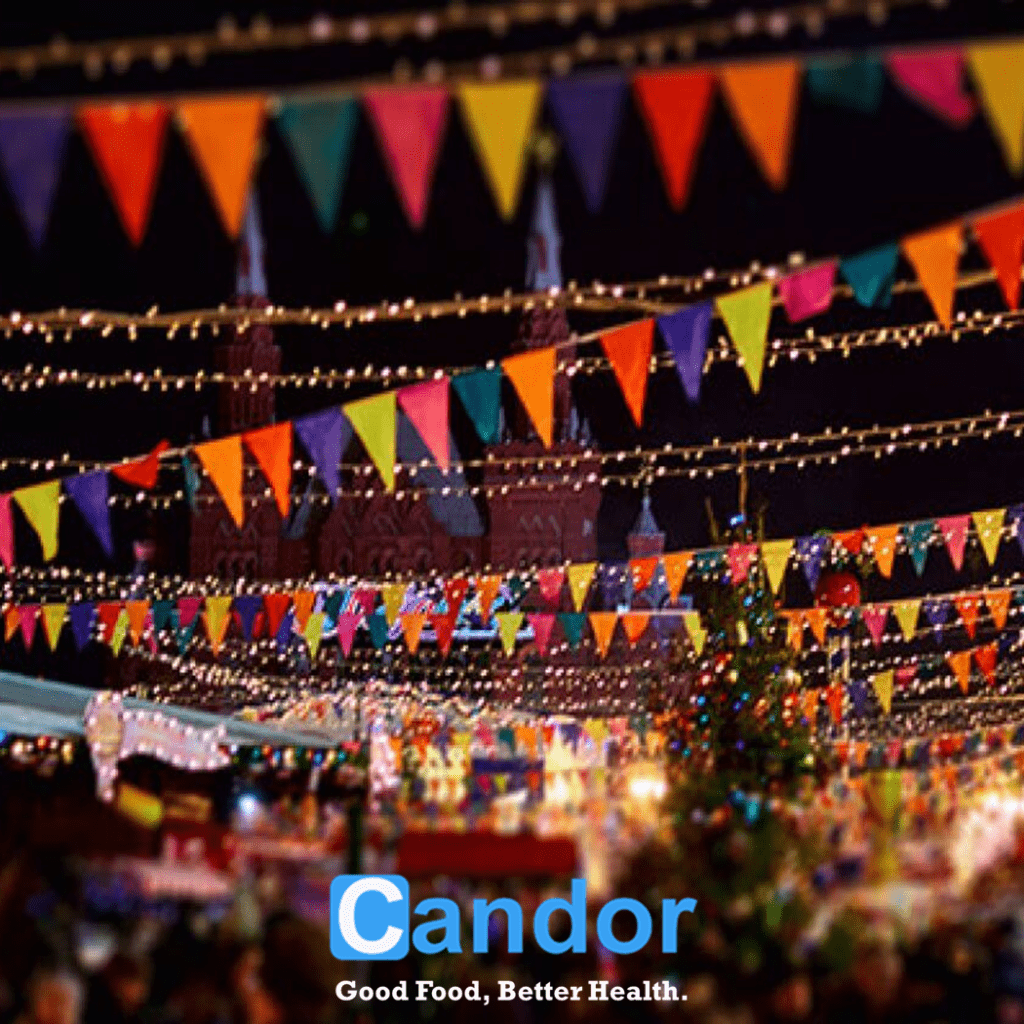
Festivals like Dussehra, Diwali, Chhath Puja, and Christmas bring joy, color, and a sense of togetherness. However, for those managing diabetes, the festive season can present unique challenges, especially when it comes to maintaining blood glucose levels amidst the temptation of indulgent feasts. From October to December, a flurry of festivities fills our lives. These occasions often revolve around rich, high-calorie foods that can disrupt managing diabetes during festivals and fasts. The clash between the desire to partake in the celebrations and the need to adhere to treatment goals creates a delicate balancing act for individuals with diabetes.
Managing diabetes during festivals and fasts presents unique challenges. Many individuals with diabetes may loosen their routines during festivals, leading to spikes in blood sugar levels. Conversely, those fasting for religious observances may experience episodes of low blood sugar. This adds another layer of complexity to diabetes care. Diabetes, whether type 1 or type 2, requires a nuanced understanding of insulin utilization and blood glucose control. Poor management not only affects immediate health but also increases the risk of long-term complications such as kidney disease, eye issues, and nerve damage. Balancing festive enjoyment with health-conscious choices is crucial for overall well-being.
Understanding Blood Sugar Imbalances:
Low Blood Sugar Symptoms:
- Rapid heartbeat
- Blurry vision
- Dizziness
- Headache
- Confusion
- Shaking
- Sweating
- Hunger
High Blood Sugar Symptoms:
- Excessive urination
- Abdominal pain
- Shortness of breath
- Confusion
- Dry mouth
- Nausea and vomiting
- Blurred vision
- Fatigue
Tips for Enjoying Festivals with Diabetes:
Despite the challenges, it’s possible to savor festive moments while prioritizing diabetes management:
- Maintain regular medication and exercise routines.
- Monitor blood glucose levels consistently, especially during festive indulgences.
- Opt for smaller portions of high-calorie foods and balance them with fiber-rich options.
- Choose healthier cooking methods like baking or grilling and use sugar alternatives like jaggery or stevia.
- Stay hydrated and moderate alcohol consumption to avoid blood sugar fluctuations.
Fasting During Navratri: Practical Advice for Diabetics
For those observing fasts during Navratri, consider these tips:
- Start the fast with slow-absorbing foods to maintain steady blood glucose levels.
- Include foods like roasted nuts, paneer, and non-starchy vegetables while avoiding high-carb options.
- Monitor blood sugar levels closely and adjust insulin doses as needed.
- Break the fast if blood sugar drops below safe levels and prioritize timely medication intake.
Managing diabetes during festivals and fasts requires a blend of awareness, moderation, and proactive health measures. By making informed choices and staying vigilant about blood sugar control, individuals with diabetes can enjoy the festive season while safeguarding their health for the long term.
Plan Ahead for Diabetes Management During Festivals or Fasts
Before the festivities commence, it’s crucial to plan meticulously to ensure your diabetes management remains on track. Consult your healthcare team to discuss your dietary needs and insulin regimen adjustments, and keep emergency contacts handy for peace of mind during celebrations.
Mindful Eating Practices
While enjoying festive delicacies is part of the joy, practicing mindful eating is essential for managing diabetes. Choose healthier food options whenever possible, savor each bite mindfully, and prioritize moderation and portion control to maintain stable blood sugar levels.
Regular Blood Sugar Monitoring
Track your blood sugar levels regularly for better diabetes management, especially during festive periods.
Stay Physically Active
Incorporate physical activity into your festive routine to regulate blood sugar levels effectively. Engage in post-meal walks with loved ones or participate in fun activities that promote physical well-being.
Hydration and Blood Sugar Control
Don’t overlook the importance of staying hydrated, especially during busy festivities. Opt for water or sugar-free beverages to avoid unnecessary spikes in blood sugar levels.
Alcohol Consumption Guidelines
If you choose to consume alcohol, do so responsibly and in moderation. Be mindful of the potential impact on blood sugar levels and avoid sugary mixers that can exacerbate fluctuations.
Effective Communication
Inform friends and family about your diabetes management needs to create a supportive environment during celebrations. Open communication ensures understanding and assistance when necessary.
Self-Care Prioritization
Amidst the holiday rush, prioritize self-care by taking moments to relax, meditate, or engage in activities that promote well-being. Managing stress positively influences blood sugar control.
Diabetes-Friendly Dish Preparation
When attending gatherings, consider preparing diabetes-friendly dishes to enjoy without compromising health. Your thoughtful contribution may inspire others to make healthier choices. If you are unsure about whether to consume a specific item, it is advisable to check your blood sugar levels before and after consuming it. As someone with diabetes, you can still enjoy your favorite treats by being mindful of portion sizes. Overindulging can cause a sudden rise in your blood sugar levels. It is crucial to consult with your healthcare provider regarding how certain foods may impact your blood glucose levels. If you have any uncertainties about what to include in your diabetes diet, always seek guidance from your doctor or health coach.
References:
- Kalra S, Bajaj S, Gupta Y, Agarwal P, Singh SK, Julka S, Chawla R, Agrawal N. (2015) “Fasts, feasts and festivals in diabetes-1: Glycemic management during Hindu fasts.” Indian Journal of Endocrinology and Metabolism.
- Latt TS, Baruah MP, Sahay R. (2013) “Nutritional recommendations for type 2 diabetes during Buddhist Lent (War Dwin).” Journal of Medical Nutrition and Nutraceuticals.
- Jaleel MA, Raza SA, Fathima FN, Jaleel BN. (2011) “Ramadan and diabetes: As-Saum (The fasting).” Indian Journal of Endocrinology and Metabolism.
- Jaleel MA, Fathima FN, Jaleel BN. (2013) “Nutrition, energy intake-output, exercise, and fluid homeostasis during fasting in Ramadan.” Journal of Medical Nutrition and Nutraceuticals.

